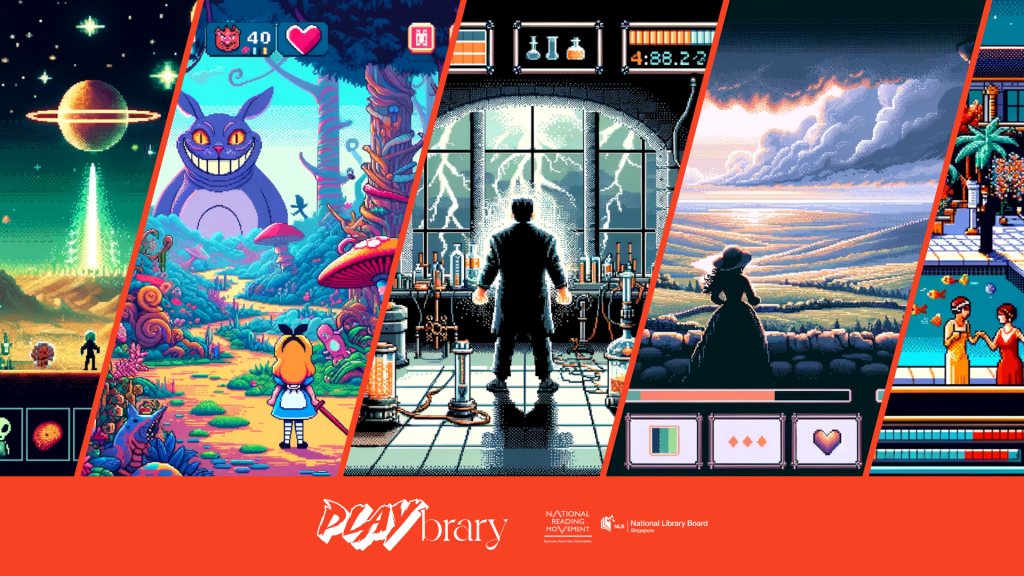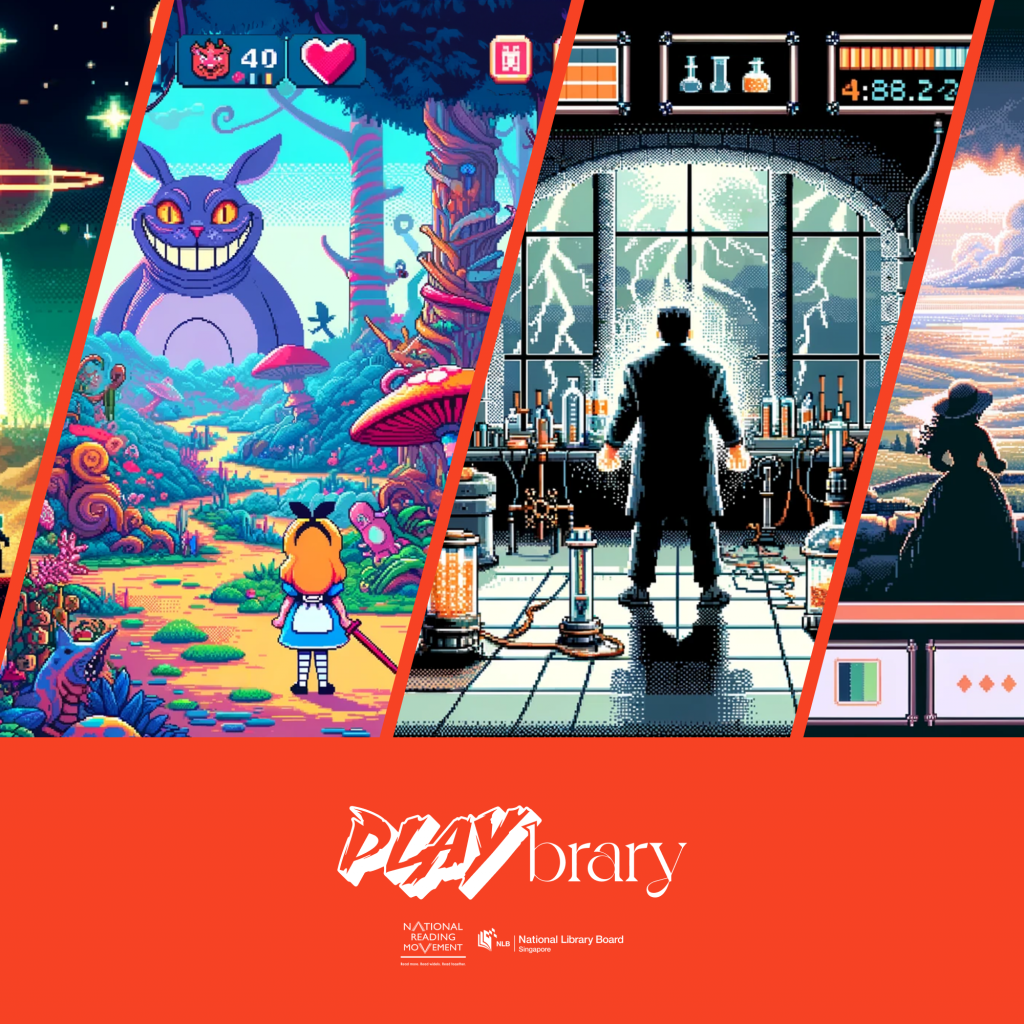
Gamers and readers can now meet in classics like Frankenstein and The Adventures of Sherlock Holmes.
For the first time, books will be transformed into adventure games using Generative Artificial Intelligence (Gen AI).
In Playbrary, a latest prototype innovation by National Library Board (NLB) and creative agency LePub Singapore, books are transformed into games in an interactive reading experience through ChatGPT.
Playbrary lets players explore classic books, adds twists to its narrative, and blends storytelling with digital gameplay. For instance, players can assume the role of Sherlock Holmes and make choices together with the help of Dr John Watson to solve a mystery case.
This breakthrough fusing of AI and gaming is part of NLB’s National Reading Movement efforts to encourage more people to cultivate good reading habits, setting aside time for reading and exploring books of different genres.
For a start, players can choose from selected classic book titles including Jane Eyre, Pride and Prejudice, Frankenstein, 20,000 Leagues Under the Sea and The Adventures of Sherlock Holmes.
 Accessible and free for everyone, Playbrary allows players to embark on literary journeys, and cultivate a greater appreciation for classic books.
Accessible and free for everyone, Playbrary allows players to embark on literary journeys, and cultivate a greater appreciation for classic books.
This innovation also contributes to NLB’s ongoing efforts to enhance the reading and learning experience for everyone, including digital-focused audiences. More classic book titles will be added to Playbrary over the next few months.
NLB’s Chief Executive Officer Ng Cher Pong said: “This is part of NLB’s ongoing efforts to make Generative AI accessible to all. Our partnership with LePub Singapore opens new, innovative ways for more to read and learn. Through the gamification experience of Playbrary, we hope to encourage more Singaporeans to read these classics after playing the game. We also invite like-minded partners onboard to explore emerging technologies that inspire new ways of interaction with NLB’s resources, such as through Gen AI.”
Players can access Playbrary through https://playbrary.ai from 2 April 2024.







